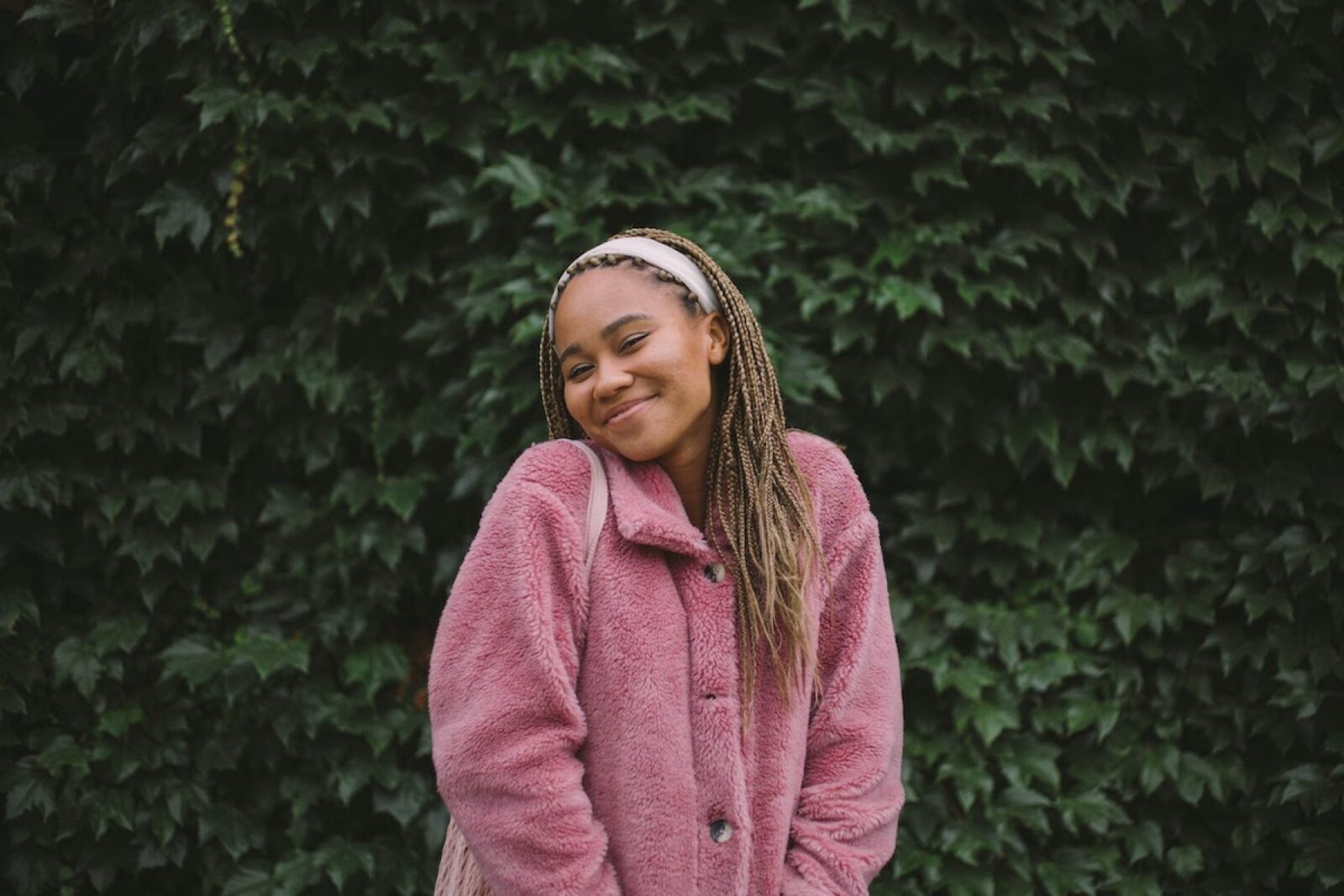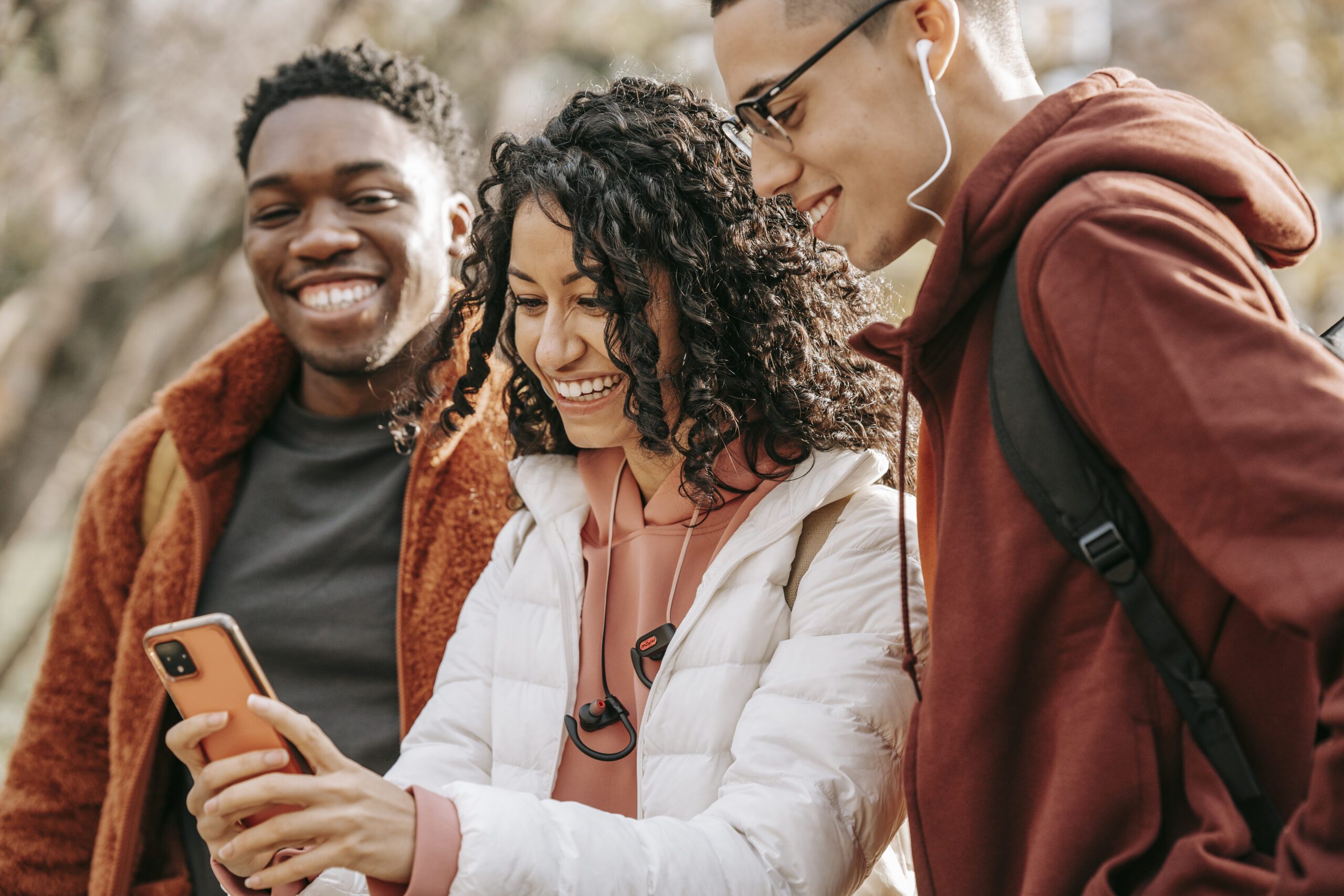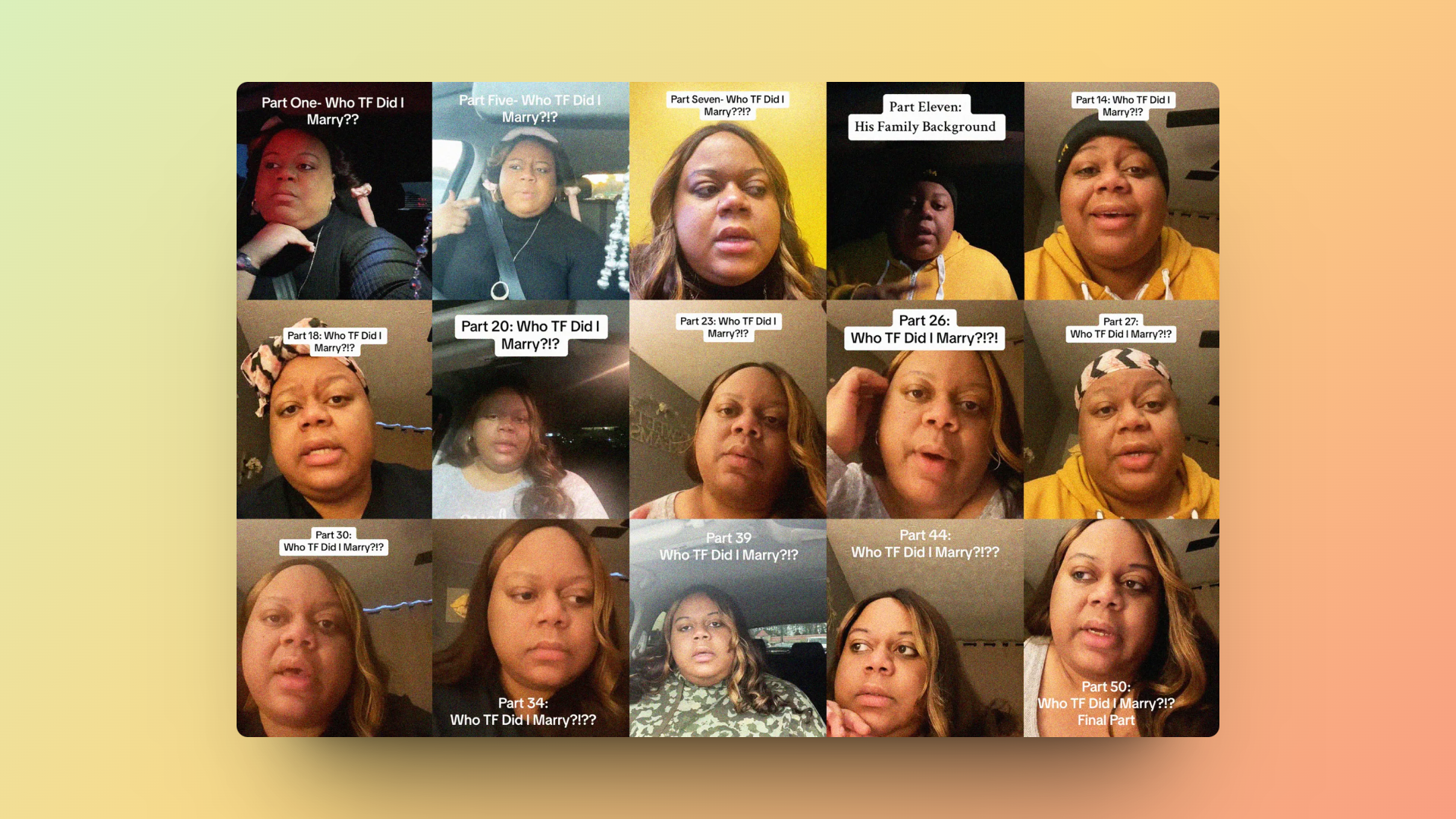Mikaela Loach is a climate justice activist based in Edinburgh in Scotland. She is a medical student at the University of Edinburgh. She also uses her Instagram platform of over 100,000 to make the climate movement more inclusive. Her focus is on the intersections of the climate crisis with oppressive systems such as white supremacy and migrant injustices.
During our chat, we discussed the court case that Mikaela and her group at Paid to Pollute are taking towards the UK government that was supported massively by her online community. “That launch was immense, in huge part because of social media, the presence I have in the community.”
“It’s inspiring to see young kids actually who care about ending fossil fuels. They even made the other two claimants and me out of Lego with an oil ring!” She smiles:” it was so cute. It’s just amazing that it can inspire other people in that way.”
Paid to Pollute is taking the UK Government court as the government has given 3.2 billion pounds of public money to oil and gas producers in the North Sea.
Paid to Pollute wants the government to demonstrate leadership on this plan. They want to show how they can transition away from oil and gas while reskilling workers and creating thousands of well-paid jobs in the process.
“It’s the biggest thing I’ve been involved with. We are taking the UK Government to court, which has been quite a long journey. I protested, camped out. I nearly got arrested outside of the department that I’m now taking to court. It feels like an arc of an issue that I’ve cared about so much.”
Lessons from lockdown
With Paid to Pollute being such a success thanks to the community’s support, we reflect on one of the most powerful lessons from lockdown. Something that stood out to Mikaela through all the different lockdowns and how governments, institutions, and companies responded is that creating drastic changes is possible.
“We have the infrastructure to do that; we have the resources to do that”, she points out. “I think especially from the climate and racial justice lens, and we look at all of these things that we were told would be impossible to achieve. Yet, they were made possible during the pandemic.”
She looks at examples such as people being furloughed and still supported. People can work from home as well, something that disability activists have been talking about for a long time.
A lot of things were scaled back. Emissions were reduced in some ways that were all able to be done. It shows that we can do anything. There needs to be enough willpower behind them. And that not creating changes is also a choice.
Mikaela Loach has been busy revising exams all before setting off to take a sabbatical from medical school, an excellent reminder of the importance of stepping back and taking some time to slow down.
“On a personal level, I’ve learned a lot about trying to slow down”, she admits. Learning to slow down is essential – but also in the midst of that, it’s vital to find boundaries for many people around your time, something Mikaela worked hard to set for herself, which has made her take more significant decisions linked to her well being.
Embracing boundaries
“I think being at home, we thought we’d have all the time to do things. I’ve learned how to put boundaries in to protect my time. I learned that my obsession with being busy was linked to a lot of internalised capitalism. Felt like my worth would come from being productive, and I only would have as much worth as I was productive. I realised how many of these things I’d say to myself would disagree with my values and beliefs. It was a manifestation of my ego saying, ‘I need to do everything.”
The power of community
Through this process, she had learned that it’s much healthier to set boundaries and say no more, and even share those opportunities with other people that might not have their voices heard as much.
“I think for a lot of people wanting to make a difference, it can be hard because we feel like we have to do everything. We have to be everything. But I’ve just realised that I won’t be useful to anyone if I’m completely burnt out. And I want to be here for a long time doing this work for a long time. And I think to do that, we also have to look after ourselves.”
Mikaela Loach praises the community’s power and how it supported her throughout this past year and a half, something we massively get behind.
Especially when it comes to creating change, we can’t do it alone. We’re just a result of the people that we’ve been surrounded with, who’ve supported us and loved us.
Understanding self-care
“I think I would have struggled had I not been surrounded by people to ground me, especially when having such a big online platform.”
As well as being a very grounding experience, is also created a space to vent to people who get it – something she sees as a big part of self-care.
“I think self-care has been capitalised on so much. We’ve made self-care into something you buy and can only achieve if you have access to capital. But I think a lot of the best self-care that I’ve experienced has been when I’ve put myself in spaces around people who I know that I can vent to and be with and be in community with and support each other.”
There is nothing wrong with bath bombs and face masks: “don’t get me wrong, I love a bath bomb every once in a while, ” she laughs. “Yet, I think that we need to reflect on how we see self-care. Because if we don’t have community, if we’re not caring for ourselves in that way, we’re not going to be able to be fully renewed.”

The impact of social media
In her content, Mikaela Loach opens up extended conversations encouraging her audience to question things, start conversations, and proactively be part of the journey. When looking at accomplishments and challenges, a few core elements spark to mind. The most rewarding aspect has been connecting with people all over the world who are doing this work. To have the ability to reach people, organise, and spread information about important things.
Yet, such a big platform also brings some challenges to learn from. Mikaela reflects on the challenging side of having such a big platform and the amount of pressure and weight suddenly put upon her voice.
“I’m not qualified to talk about a lot of different things that people will ask me to talk about. I think that’s what’s difficult. Often, we can put people on a pedestal on social media where we feel they know everything about everything. I find that quite a journey because I have carried that burden on myself. Yet, it’s not my responsibility. I can talk about the things that I know, and I can uplift other voices when I do when I don’t know as much.”
How to amplify other people’s voices
She suggests how, if you don’t have lived experience or knowledge around an issue and want to raise awareness for it. If you can amplify people who understand the problem and have researched this and live in that situation. “We think we have to say everything when sometimes we’re not the best person to say. Yet, we can use our platform to amplify someone else’s voice. Remember that social media is not the be-all and end-all.”
Showing up online, sharing a positive message does not have to be all about being vocal on social media. There are so many different roles, and whatever skills people have, they will be helpful.
In her book Freedom is a Constant Struggle, Angela Y. Davis writes:
“It is essential to resist the depiction of history as the work of heroic individuals in order for people today to recognise their potential agency as a part of an ever-expanding community of struggle.”
To Mikaela, this quote is a reminder that all of us have the power to be part of this community of struggle, and we all need to take our position. This might not be the public-facing one, and it might be something completely different.
“When we focus on these people who seem extraordinary, Martin Luther King Jr, Nelson Mandela and Angela Davis, if we make out that they were the ones who create a change, we are giving a wrong telling of history. The reality is that change was created by huge amounts of movements and huge amounts of people. The people who did the monotonous work including printing out leaflets and sticking them up around the city. We need to remember that all of us have the power to be part of this community of struggle, and we all need to take our part.”
There is not one single-issue struggle
She admits to tearing up and getting emotional whenever she gets a message from someone. “It’s such a small thing, but that’s all I want. I don’t want awards or any of this stuff. All I want is people to get involved in organising. The more people we have doing that, the more chances we’ll be able to create.”
Words she leans on a lot and often goes back to are the ones of Audre Lord: “There is nothing as a single-issue struggle because we do not live single-issue lives.”
May this be a reminder that we all need to be part of movements and struggles. “We all have to become part of the sleeping giant that awakes. So often alone, when we’re here as individuals, we feel like we have no power in this world. Whereas when we come together with movements and communities, we become part of the sleeping giant that has so much more power than we had when we were on our own.”
We can do so much, and we can change so much. And we can create this new world that we want to see, what Mikaela Loach beautifully refers to as the breath of the New World.
To stay in touch with Mikaela Loach and to see how she is championing change each day, have a look at her social media.
Ready to get started with positive impact marketing?
Set up power marketing systems build a marketing strategy that drives results, when you join our certification.
Develop an advanced set of marketing skills that drive more measurable results to any project and harness the power of psychology, purpose, storytelling, and impact to build trust in an increasingly skeptical world.
Take our certification, build your marketing plan and build your ultimate marketing toolkit.





